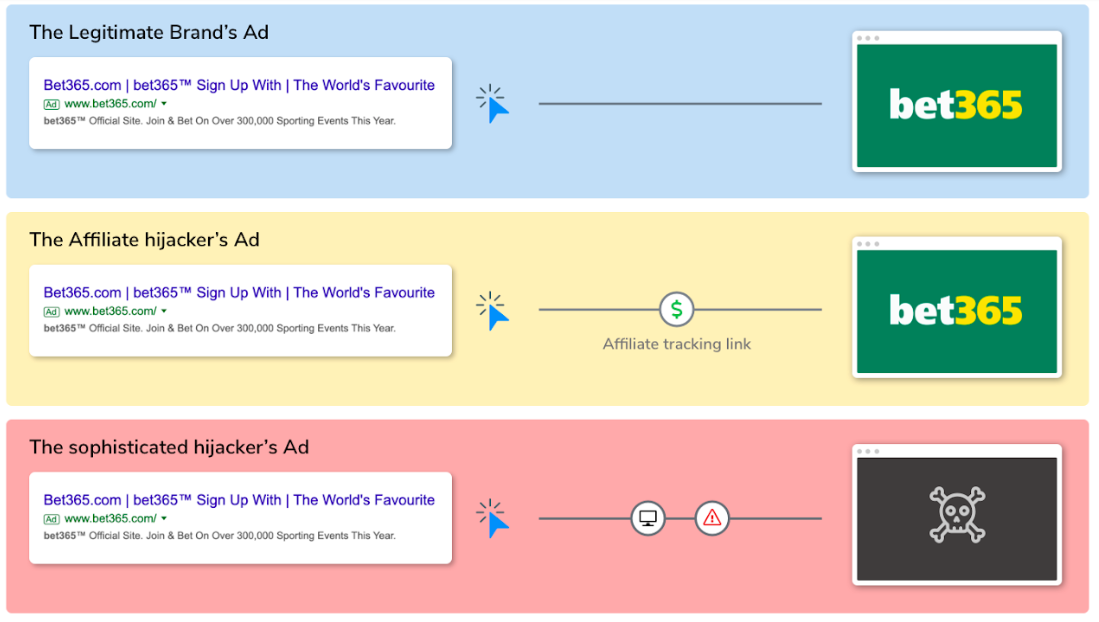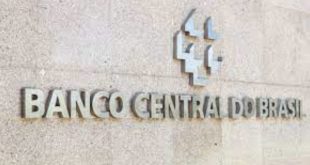
Player acquisition expert Paul Torzel, founder of RTSportsMedia deep dives SBC audiences into the growing threat of Ad-Hijackers targeting the industry’s online marketing campaigns.
As bookmakers and affiliates increase their online advertising coverage, Torzel recommends that due-diligence will be needed across all stages of a campaign’s lifecycle.
_______________________
Gambling advertisements are huge, and it is rare you can search for anything sport or gambling-related without seeing advertisements amongst the Google search results. Since 2014, the total gambling ad spend in the UK has risen by 56%, showing just how competitive and big this side of the market has become.
With an estimated £1.5 billion spent on advertising by the gambling industry, it is thought that sector adverts now account for 8% of the total UK advertising market. With questions over betting sponsorship in football, if this channel were to be closed, more ad-spend would likely be attributed to online advertising verticals.
However, not all of this is above board as it should be. During a three week study at the end of 2019, it was found that the top paying advertisers from the gambling industry on Google were using a technique known at ad-hijacking. This is becoming more and more apparent in the gambling industry, and it has an affect on all three area, the bookmakers and gambling sites themselves, legitimate affiliates and the customers who are falling foul of these practices.
What is Ad-Hijacking?
Ad-hijacking is what this is commonly known as, although you may have also heard it referred to as brand poaching, URL jacking or direct linking in the past. They are all the same thing.
An ad-hijack occurs when an affiliate runs a paid ad on Google that looks identical to the brand’s own advertisement. They use headlines and descriptions to match what has been said by the provider they are targeting. For example, a legitimate paid ad by well-known bookmaker would look identical to an ad-hijack designed to take someone to their site.
When you click on their paid advertisement, you will be taken to the page you expect for your deal with whatever you want from the company. However, during loading times you are quickly re-directed to a blind site in which an external affiliate tag is placed on your IP address
This means that when you make a transaction on the site, you are now registered as a customer of the affiliate, and therefore they will earn commission from your actions.
How Can Ad-Hijacking Affect the Betting Public?
The underlining threat is that you don’t want an underhand affiliate making money from you in any way. If you are going to sign up with a bookmaker and give an affiliate the commission for that then you want this to be one that has done things correctly and one that has a proper agreement in place with the bookmaker.
According to leading affiliate portal newbettingsites.uk it is possible to find bookmakers and affiliates that have genuine and above board agreements in place, and who don’t do things underhand in any way. They recommend using comparison sites that have a direct contract with the bookmakers in question, this means the bookmakers know who they are and know that they provide a legitimate service.
How to Spot and Prevent Ad-Hijacks
This is not easy, because the people that run this type of company and use these ads to their advantage use very complex methods to fool people. There is nothing wrong with being fooled by the ads, but you can prevent this from happening if you are careful.
One thing to look out for is when you are asked for permission to download and install some software on your computer. If this is the case then it could be a sign that something is wrong. regular bookmakers or any other site for that matter would not usually ask you to do this, whereas those behind ad-hijacks would.
If you accept and install this software then you are giving the ad-hijackers something on your computer that they can track you with, this isn’t something legitimate from the site you are visiting.
The best way for those in the gambling industry to protect themselves is to ensure that the contracts they have in place with their affiliates are fit for purpose. This means clear guidelines about how to promote a brand and a list of unethical procedures that cannot be used.
The hope is that this will put off the majority of ad-hijackers from attempting to sign up. It is also worth following up with affiliates if they provide a lot of traffic, to find out where this has come from, especially if it is a relatively new start-up that is sending way more traffic than expected.
Fighting the ad-hijackers is not easy, but by following the steps above, bookmakers and other gambling companies should find out where suspicious activity is coming from. This will give them the chance to cut ties with those, and focus on rewarding and supporting the affiliates that do things in the correct manner.
______________________







